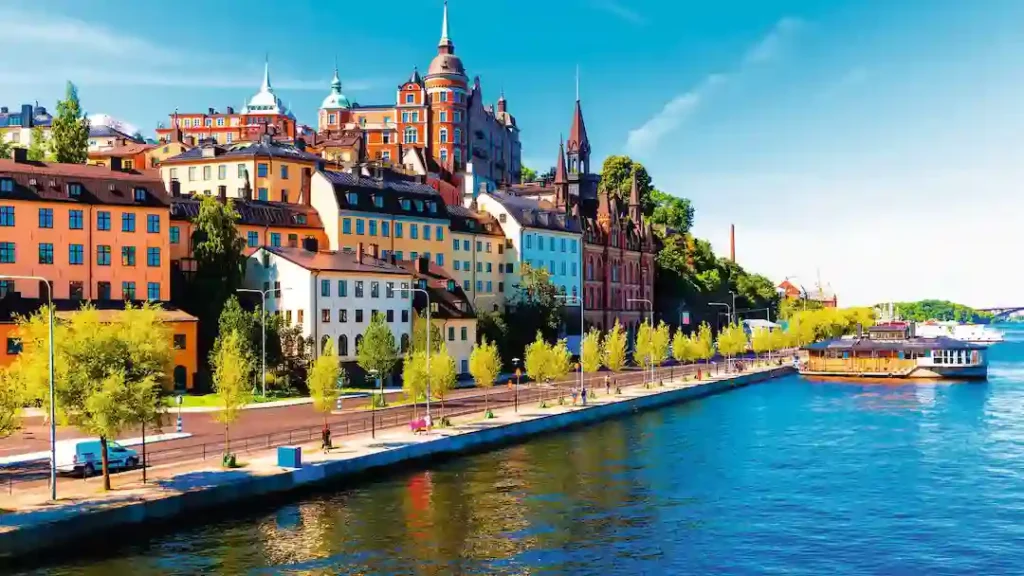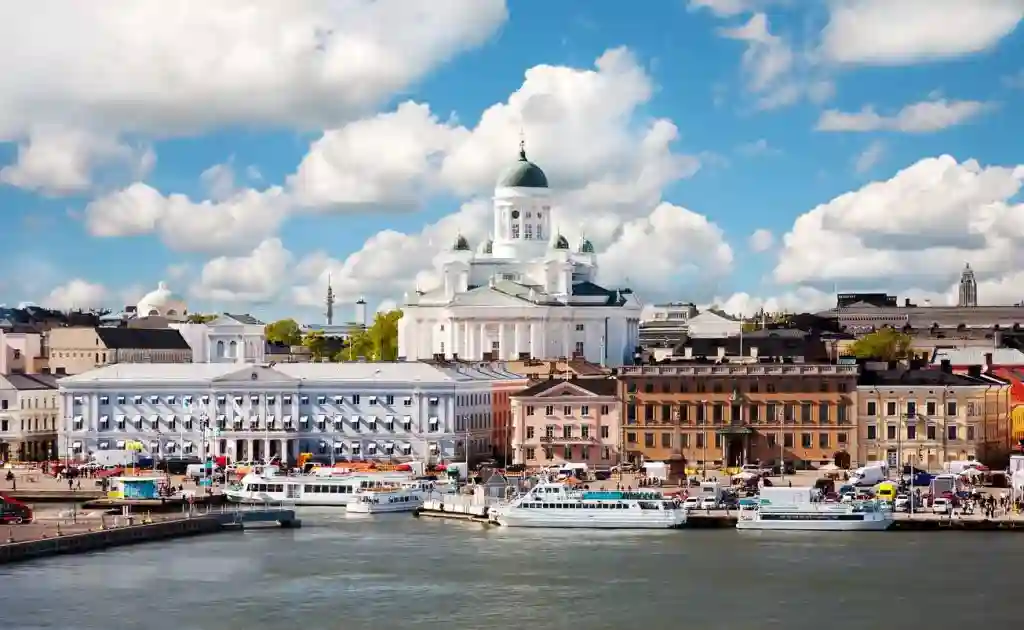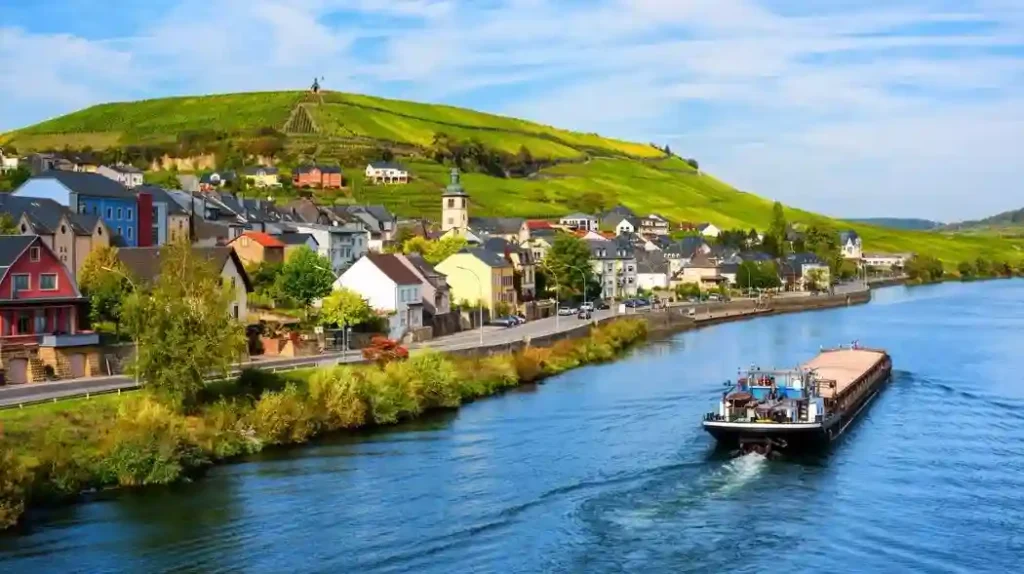If you’re looking for the Top 10 Cleanest Countries in the World, then you are at the right place. In this article, we will discuss the Top 10 Cleanest Countries in the World in 2024.
The beautiful and clean environment always brings us a warm and beautiful feeling. Cleanliness is more than just a sensory experience. Clean water, pure air, effective waste disposal, and effective sanitation can all significantly improve human health.
A recent study by Yale and Columbia Universities, in collaboration with the World Economic Forum, analyzed more than 180 countries around the world in areas such as cleanliness and environmental friendliness, ecosystem vitality and environmental health, including air quality, water and sanitation, biological Diversity and habitat and sustainability, which ranks it.
To accomplish this task, academics have created the Environmental Performance Index (EPI), a method for identifying problems, setting targets, tracking trends, understanding outcomes, and identifying best policy practices. The higher the EPI score, the higher the cleanliness and environmental friendliness of the country.
Here let us take a look at the top 10 cleanest countries in the world in 2024 right now!
Top 10 Cleanest Countries in The World
10. Germany

Environmental Performance Index ( EPI ): 77.2
Germany is a famous immigrant place in the world, has a strict garbage classification system, and has a high utilization rate of renewable energy. The efforts to control environmental pollution are very strong, so Germany is a very clean country.
Germany scored 97 percent for wastewater treatment, showing that its sanitation and pollution control processes are efficient. In addition, the country’s PM2.5 air quality concentration is 11 μg/m3, which highlights successful measures to reduce particulate matter and improve air quality.
However, Germany used to be one of the countries with the most serious environmental pollution in the world. After decades of ecological governance, Germany has become one of the countries with the best environmental protection and the most successful ecological governance recognized in the world.
Believe it or not, anyone who has been to Germany knows that there is very little pure water sold in German supermarkets because people can drink clean and sweet tap water from the tap.
The Germans are also pragmatic in their environmental protection education for their children. They don’t preach the truth. Instead, they let the children start with writing a diary, start with small things, and constantly strengthen their awareness of environmental protection, so as to develop good living habits.
The Germans believe that starting from childhood habits and subtly cultivating children’s environmental awareness is more effective than simply preaching!
Nowadays, Germans live in a clean and clean environment, which is really enviable! At the same time, this is one of the reasons that attract many people to emigrate.
9. Norway

Environmental Performance Index ( EPI ): 77.7
Norway is located in Europe and is known as the “Nordic Paradise”. The population of Norway is only about 5 million, but the local economy is still very developed. So what is the reason why Norway is not only pollution-free in the environment but also in economic development is very good. In fact, this is inseparable from the people and government of Norway. The government has measures to implement, not only the responsibility of the government but also the maintenance of every people.
Norway is considered one of the cleanest countries in 2023 due to its excellent air quality. This status is mainly attributable to its average PM2.5 concentration of 7 μg/m3, which is slightly higher than the global standard of 2.5 μg/m3.
Norway’s system is to levy smoke and dust emission taxes, promotes hydropower generation, have strict environmental pollution and governance laws, and has very strict requirements for the environmental protection awareness of the whole people.
There are strict environmental protection laws here, ranging from garbage disposal to ecological protection. It can be said that all fields are closely related to environmental protection. Not only that, even in the suburbs None of the stones can be moved around at will. If the animals’ homes are destroyed, the police will be punished if they find out.
Even the classification of garbage is divided into many types, not only recyclable and non-recyclable, but the classification of all kinds of garbage is enough to show how much Norwegians attach importance to the environment.
8. Sweden

Environmental Performance Index ( EPI ): 78.7
Sweden is one of the countries with the most beautiful environment in the world today. Its forest covers 64% of its land area, and its air quality ranks third among more than 180 countries in the world. The quality of the ecological environment maintains a high level of real estate and does not limit the rapid development of the national economy.
In Sweden, the national garbage utilization rate is very high, which not only protects the environment but also saves resources. Sweden has already achieved “recycling of waste”. The Swedes believe that “garbage is also energy, for example, 4 tons of garbage is equal to 4 tons of oil”, and the Swedes believe that “garbage is a misplaced resource” has become a social consensus. According to statistics, as early as 2016, Swedish residents produced a total of 4.67 million tons of domestic waste, but 99.3% of them were recycled.
Swedish Prime Minister Stefan Löfven once promised: Sweden will provide green financial support and innovative technologies to the world internationally; it will become the first country in the world not to use fossil fuels through green energy construction measures. Sweden’s net greenhouse gas emissions will be zero by 2045 and negative thereafter.
Sweden has achieved notable success globally in areas including environmental issues, air pollution, and more. Although Sweden has a relatively large area and a relatively large population, its outstanding achievements in environmental protection are undoubtedly the result of the perseverance of the Swedes.
7. Finland

Environmental Performance Index ( EPI ): 78.9
Finland is one of the most Nordic countries in the world. The country has first-class transportation, technology, education, and environmental protection, so it is recognized as one of the cleanest countries in the world. As early as the early 20th century, Finland had already begun to consider the issue of environmental protection in depth.
Today, the government of the country has promoted projects such as bicycle lanes covering the entire territory, underground garbage disposals, and self-circulating energy facilities in rural areas on a large scale, and also promoted the use of wireless Human-machine monitoring of water quality and other technologies.
Finland is known as the “Land of a Thousand Lakes” in the world. Finland pays great attention to protecting the environment and water resources. Therefore, the water resources in Finland are very clean, and even residents living in Finland can drink well water directly. It can be said that this is a very clean country. As early as 2005, the “World Economic Forum” once rated Finland as the most environmentally friendly country in the world!
As early as September 3, 1886, Finland, a “green country” where forests account for 66.7% of the country’s land area, promulgated the world’s first environmental protection law – “Forest Law”, emphasizing that trees must be reforested immediately after harvesting. As a developed country, Finland has always been an outstanding example of ecological innovation, with successful experience and advanced technologies in the field of environmental protection.
6. Austria

Environmental Performance Index ( EPI ): 79.6
Austria is also a European country that manages to get listed as one of the cleanest countries in the world. This country maintains a list of the best countries to live in. With clean surroundings and historical monuments. Austria is consistent with economic growth, pollution rates, hygiene, and the working environment.
Austria gives people the feeling that it is a relatively clean country. As a country with mountains and rivers, the smart Austrian government applies 3% of the annual gross national product to environmental protection investment and implements stricter environmental regulations than other EU countries.
Friends who have been to Austria know that tap water in Austria can be directly drunk, and its indicators are far higher than the EU drinking water standards. Moreover, the concept of environmental protection in Austria is the consensus of the whole country.
The concept of environmental education has been integrated into it since childhood. For Austrian children who have learned to respect the environment and resources since childhood, maintaining their own home environment has been integrated into their growth along with their growth. In life, everything becomes natural and beautiful.
In Austria, the water from the tap can be drunk directly, and they also have a very complete grading system. Austria is consistently rated as having one of the highest standards of living in the world, and Vienna almost always ranks among the most livable cities in the world.
5. France

Environmental Performance Index ( EPI ): 80
France is a typical land-sea complex country in Europe (Britain is an island country, and Germany and Russia are both land power countries), and it is located on the edge of Europe. France has a larger land area (about 670,000 square kilometers), the third largest in Europe (after Ukraine and Russia), and the largest in Western Europe.
It is worth mentioning that the French government once implemented an “anti-waste plan” to gradually ban the use of all disposable plastic items. France’s ultimate goal is to reduce the use of disposable plastic items to zero by 2040. According to the announcement, the sale of some disposable plastic products will be banned in France from January 1, 2020, including household disposable cotton swabs made of plastic, disposable plastic cups and plates, etc.
French school canteens will also ban the use of plastic bottles of purified water. In 2021, the government will step up efforts to ban the sale of drinking water in plastic cups, plastic straws and stirrers, and polystyrene lunch containers.
In order to promote green travel and improve air quality, the French government will invest more funds to encourage people to buy new electric vehicles or hydrogen-powered vehicles.
Jean-Louis Barr, chairman of the French Renewable Energy Association, once said, “France has technical strength in the development and innovation of renewable energy, and expanding cleanliness by reducing costs, improving technology, and improving the level of intelligence will help gradually promote the French energy industry. transformation.”
France is a relatively procedural country, and order is everywhere. The natural scenery of France is very beautiful. Although the area is small and the population is not large, it is relatively convenient to manage. As a result, France is at the most advanced level in the world in terms of environmental management.
4. United Kingdom

Environmental Performance Index ( EPI ): 81.3
The United Kingdom is located in the west of Europe and consists of the British Isles, including England, Scotland, Wales, Northern Ireland, and some small islands. It faces the European continent across the sea, with a land area of 244,100 square kilometers.
It is worth mentioning that there have been serious environmental pollutions in British history, and London was once known as the “fog capital”. However, in recent decades, the UK has attached great importance to ecological and environmental protection, continuously strengthened relevant measures, and achieved remarkable results. At present, 35% of the UK’s sea areas are in marine protected areas, and important and vulnerable species are effectively protected. More than 95% of England’s land and freshwater protected areas are in good condition.
The British government released the “Environmental Protection Plan for the Next 25 Years” in 2018, advocating sustainable development, improving resource utilization efficiency, and actively responding to climate change in order to maintain a good natural environment.
The UK government attaches great importance to the development of clean energy and green technologies, with the decarbonization of the electricity sector a priority. More than £170 billion has been invested since the 1990s to achieve the low-carbon energy goals of the development transition and reduce reliance on carbon-intensive fuels such as coal.
It is worth mentioning that the UK has expressed its intention to impose a tax on plastic packaging that does not contain at least 30% recycled content from April 2022. The carbon footprint of UK food waste is estimated to account for a fifth of the country’s total emissions.
3. Switzerland

Environmental Performance Index ( EPI ): 81.5
Switzerland is known as a paradise on Earth. The quality of life here is very high and there are many natural attractions. It is a country that attaches great importance to safety and air quality. The air quality here is also at the top level in the world.
By the end of 2023, Switzerland will be one of the cleanest countries in the world due to its excellent air and water quality indicators. The country’s average PM2.5 concentration is 9 μg/m3, while its wastewater management infrastructure is 97 percent efficient.
Switzerland is also the country with the highest people’s happiness index. Switzerland is peaceful, has a low crime rate, and low pollution, which makes Swiss people proud of their success, because it is the cleanest country in the world. It is well known that Switzerland produces the best chocolates and watches in the world, but don’t forget that Switzerland, with its many mountains, green plains, and river valleys, also produces the highest quality mountain spring water in the world. The clean environment, air, and water sources allow Switzerland to continue to defend the championship with high scores.
In Switzerland, there is not even a single air conditioner. The reason is that the country prohibits the installation of air conditioners, the weather in Switzerland is not too high, and the highest temperature often does not exceed 30 degrees. Therefore, it is more appropriate not to use air conditioners in such weather.
Of course, the important thing is that the Swiss care about the environment very much, and it is generally believed that air conditioning will affect and damage the environment, and will also endanger human health. The reason is that the air conditioner will release Freon, which will cause damage to the natural environment, and it is also one of the causes of global warming.
Swiss people have a high awareness of environmental protection, and the protection of ecological policies is extremely strict. There are three reasons why Switzerland’s environment ranks first in the world. First of all, no one in Switzerland can cut down a tree. Anyone who illegally cuts down a tree will face legal sanctions ( For example, in prison), and secondly, you need to pay taxes for discarding non-recyclable garbage.
Therefore, Swiss people will choose to make as little garbage as possible. Thirdly, all transportation vehicles in Switzerland have been electrified. In addition, the government departments mentioned above have strict requirements not to allow the installation of air conditioners. Therefore, the air quality in Switzerland can always be world-class.
2. Luxembourg

Environmental Performance Index ( EPI ): 82.3
Luxembourg is a particularly developed country. The air quality in the country is very good. It pays special attention to the governance of the environment. Caring for the environment is an important part of life.
According to the 2023 Environmental Performance Index (EPI) report, Luxembourg is 2nd in the list of the world’s cleanest countries in 2023. This status stems from the country’s impressive wastewater treatment score of 98% and solid waste management score of 79.10%.
The country has many historical monuments and a very clean living environment. Luxembourg is a country with a stable economy, an ultra-low crime rate, and a friendly atmosphere among the people that make this country stand out even more.
Welfare is pretty well established in this country so far whether it be living here, raising kids, working, retiring, or dying here. Luxembourg values life and one’s own family. People here love to spend time in how to have a pleasant life and get close to nature.
Luxembourg is known as the country of “forest”. 70% of the country’s area is covered by forests, and everything it touches is green. People living there can always feel the air quality is very high. It is precise because Luxembourg has such beautiful natural scenery, coupled with its reputation as the “country of a thousand castles”, it attracts countless tourists to visit every year.
1. Denmark

Environmental Performance Index ( EPI ): 82.5
Denmark is the cleanest country in the world. It tops the list of cleanest countries in the world with the lowest pollution levels in 2023. It is worth noting that the country’s PM2.5 concentration is moderate, currently at 8.6 micrograms per cubic meter, and its wastewater treatment infrastructure has reached a perfect score of 100%.
Denmark is one of the countries with the best environmental protection in the world, and its environmental protection level has always been at the forefront of the world. Denmark is one of the most liveable countries in the world and one of the best economies for doing business and investing.
Denmark ranks among the top ten in the world in several indicators such as cross-border trade, handling construction permits, bankruptcy handling, and ease of tax payment.
Denmark is a global climate leader or a global leader in green energy. In Denmark, renewable energy power generation accounted for 30% of its total power generation a long time ago. In the past few decades, the Danish economy has grown by 75%, but the total energy consumption has remained basically the same, creating a world-renowned and very Unique “Danish model”.
Denmark’s environmental performance index is 82.5 which is the highest of any country. It is one of the countries with the best environmental protection in the world. The level of environmental protection has always been among the top in the world. It is also one of the most suitable economies for business and investment. Denmark has a small land area, a small population, and a small market of its own, but its geographical advantages and developed maritime industry provide it with favorable conditions for the development of cross-border trade.




